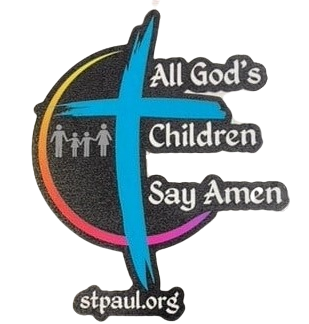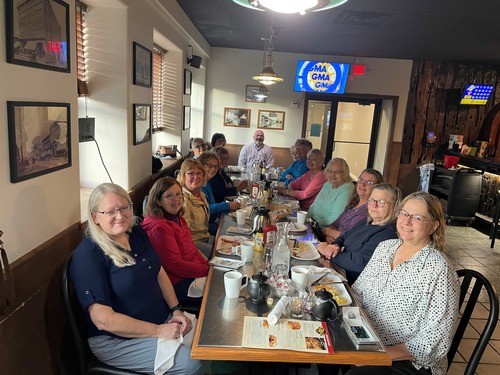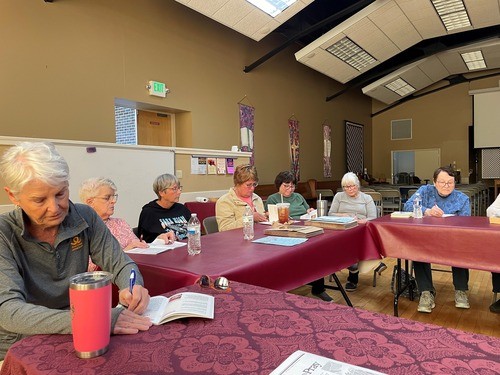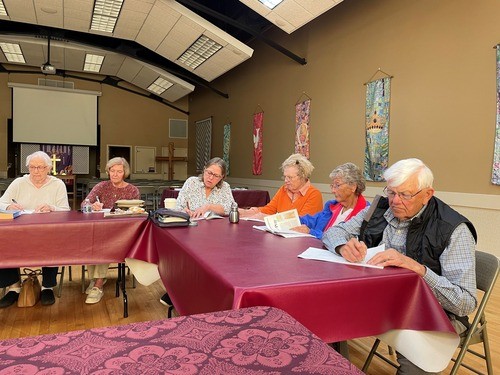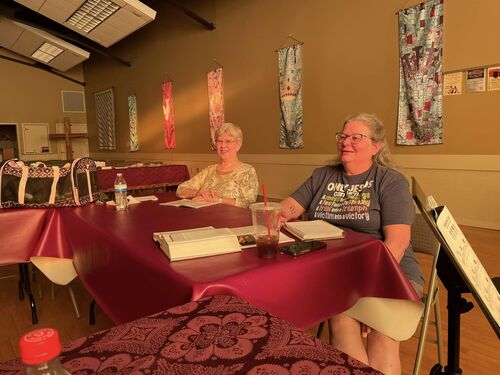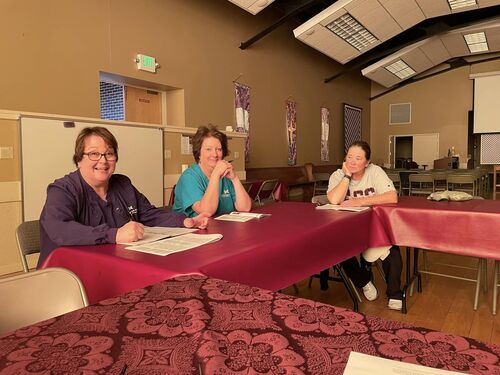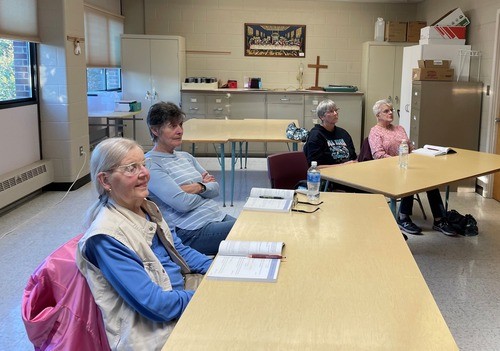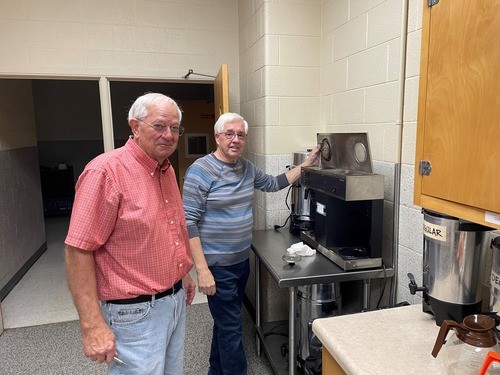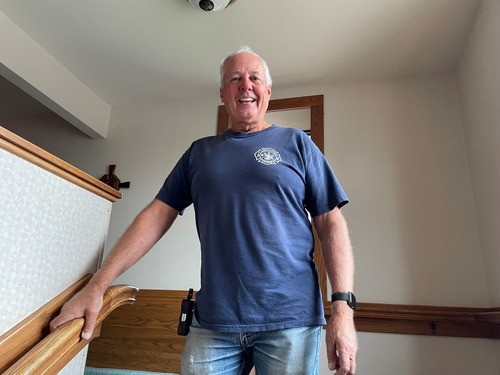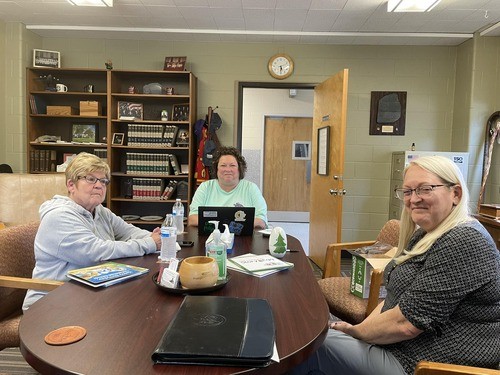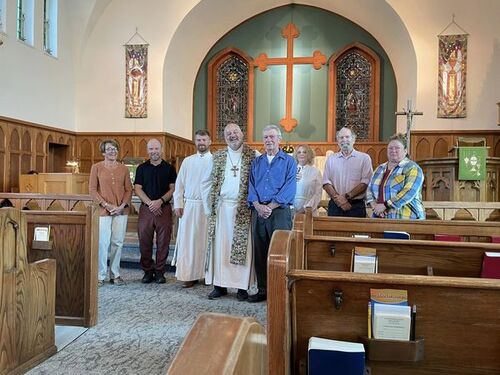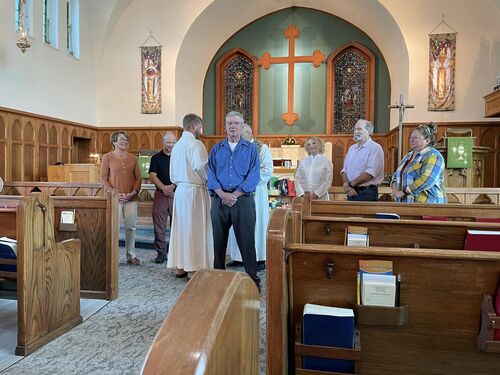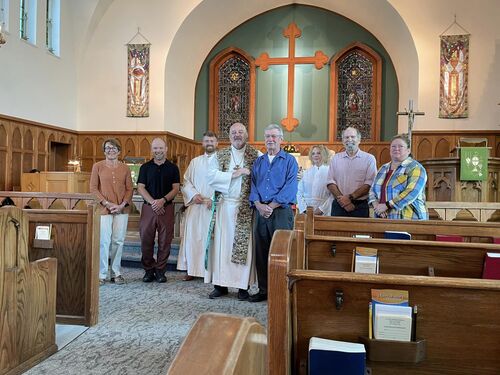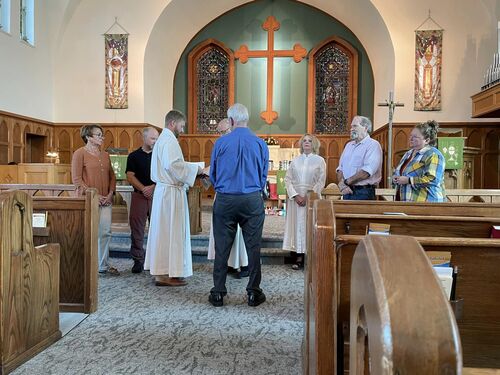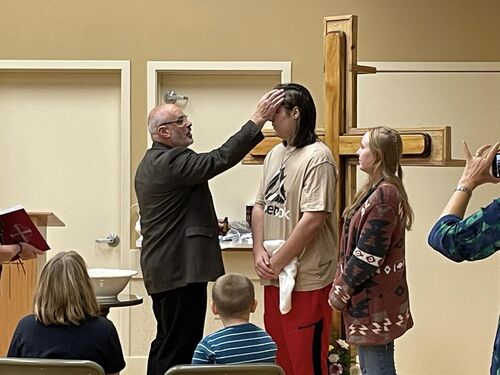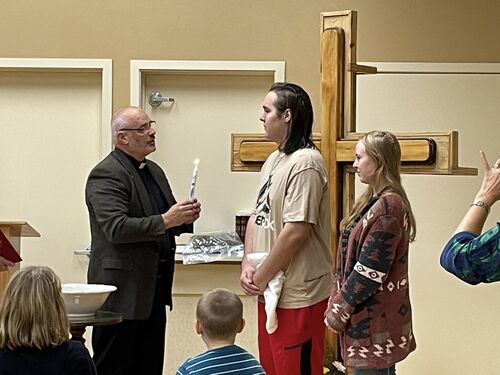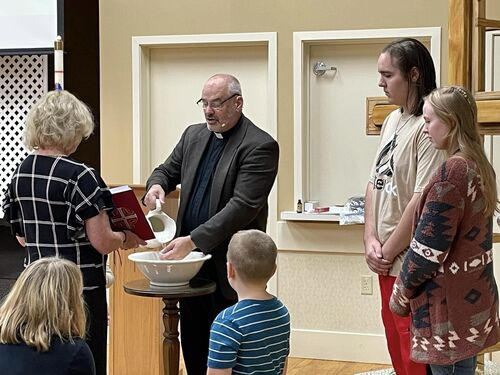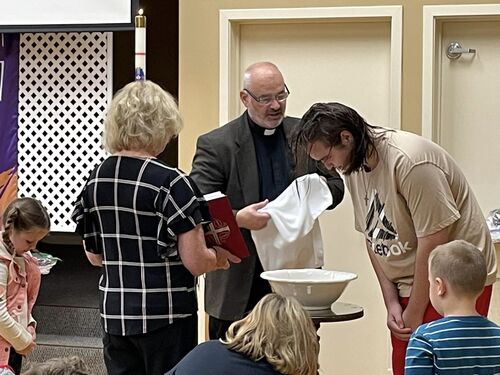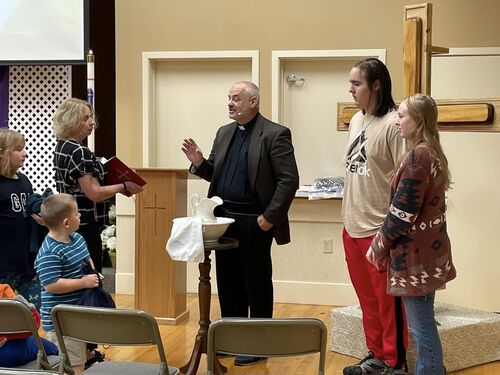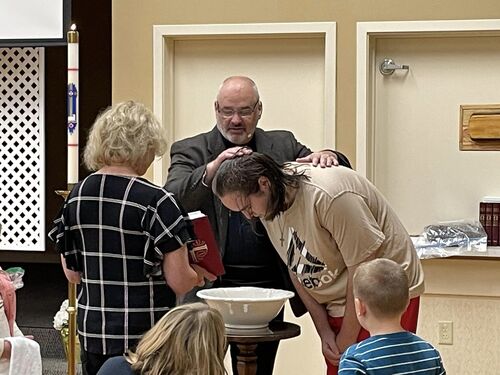news week of 10-6-2024
10-3-2024
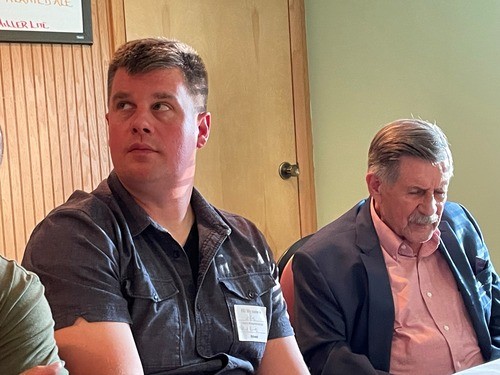
Gathered with the Gideons and other religious leaders from our community for lunch today at the 19th hole restaurant. We prayed, listened to their testimony and shared the faith. Please keep this organization/ministry in your prayers
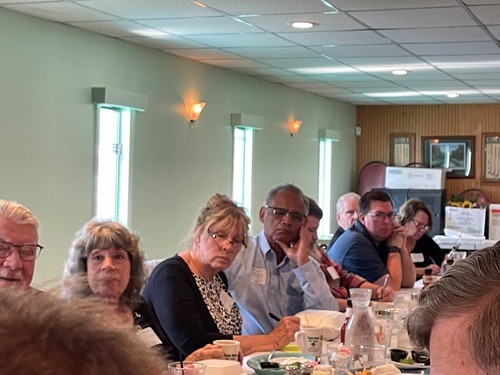
Gathered with the Gideons and other religious leaders from our community for lunch today at the 19th hole restaurant. We prayed, listened to their testimony and shared the faith. Please keep this organization/ministry in your prayers
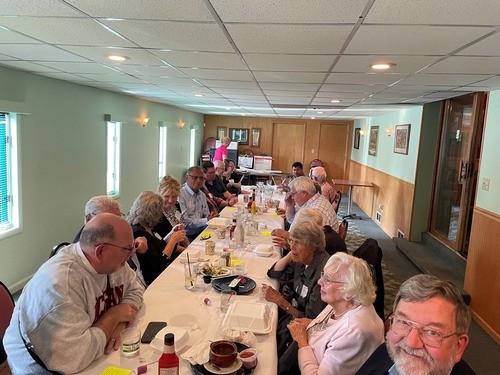
Gathered with the Gideons and other religious leaders from our community for lunch today at the 19th hole restaurant. We prayed, listened to their testimony and shared the faith. Please keep this organization/ministry in your prayers
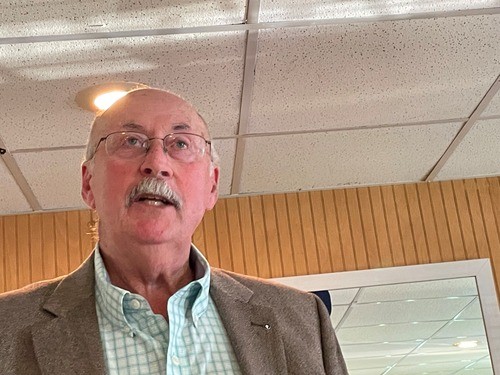
Gathered with the Gideons and other religious leaders from our community for lunch today at the 19th hole restaurant. We prayed, listened to their testimony and shared the faith. Please keep this organization/ministry in your prayers

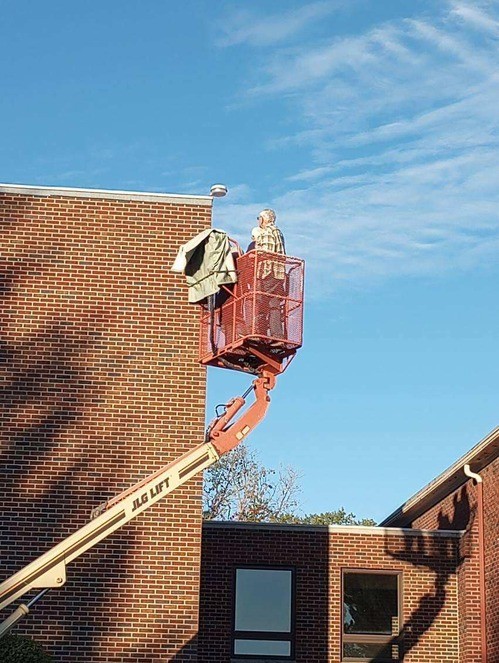
The Property Committee met last night to discuss some very important issues. They also pulled up two trees, retrieved 15 whiffle balls, and checked the roof. Please keep these servant leaders in your prayers.

The Property Committee met last night to discuss some very important issues. They also pulled up two trees, retrieved 15 whiffle balls, and checked the roof. Please keep these servant leaders in your prayers.

The Property Committee met last night to discuss some very important issues. They also pulled up two trees, retrieved 15 whiffle balls, and checked the roof. Please keep these servant leaders in your prayers.

The Property Committee met last night to discuss some very important issues. They also pulled up two trees, retrieved 15 whiffle balls, and checked the roof. Please keep these servant leaders in your prayers.
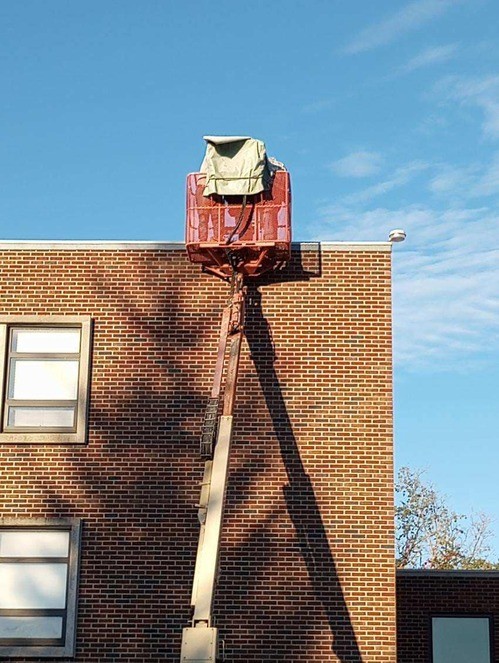
The Property Committee met last night to discuss some very important issues. They also pulled up two trees, retrieved 15 whiffle balls, and checked the roof. Please keep these servant leaders in your prayers.
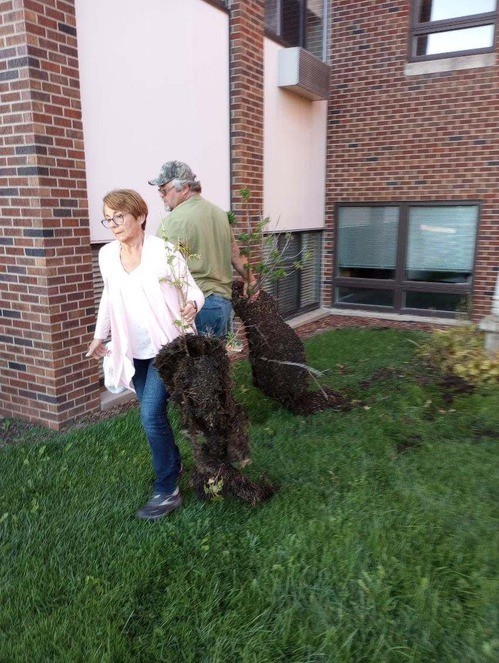
The Property Committee met last night to discuss some very important issues. They also pulled up two trees, retrieved 15 whiffle balls, and checked the roof. Please keep these servant leaders in your prayers.
Had a sacred visit with Dixie Weiler today. Please keep her and her family in your prayers.
Collections for North Carolina relief can be brought to Fitzpatrick Hardware, Plowman Collision, or C&C Trucking, (all the businesses are located on US 23 South). All the collected items will be transported to people in need. Ther trucks will depart on Friday, October 11th at 7:30 A.M. Everything from baby products to dogfood are needed. Please do what you can to support our nation and please begin with prayer.
Collections for North Carolina relief can be brought to Fitzpatrick Hardware, Plowman Collision, or C&C Trucking, (all the businesses are located on US 23 South). All the collected items will be transported to people in need. Ther trucks will depart on Friday, October 11th at 7:30 A.M. Everything from baby products to dogfood are needed. Please do what you can to support our nation and please begin with prayer.

The 3M (Men in Motion for Ministry) gathered this morning and spoke about belonging (to family, church, etc.). Come and join the faithful conversation at JJs on Thursdays, 7:00 AM.

I celebrated with Bradley Somers and his staff, as I presented a check of $2187.00 in support of the Boys and Girls Club. Thanks to everyone who gave to the noisy offering during the past year. Please keep the leadership and children associated with the Boys and Girls club in your prayers.

Pat Brodziak made a "Quilt of Valor," to be presented to a veteran in Alpena. I was honored to present the QOV to Pastor Bill Rayment USN (ret)
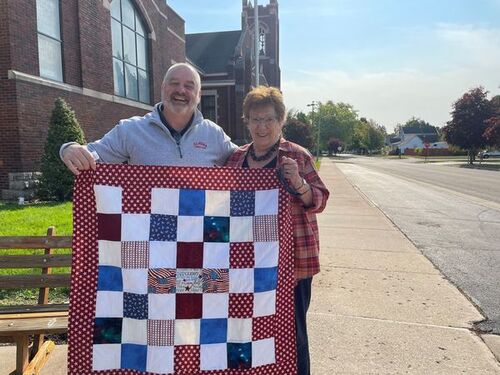
Pat Brodziak made a "Quilt of Valor," to be presented to a veteran in Alpena. I was honored to present the QOV to Pastor Bill Rayment USN (ret)
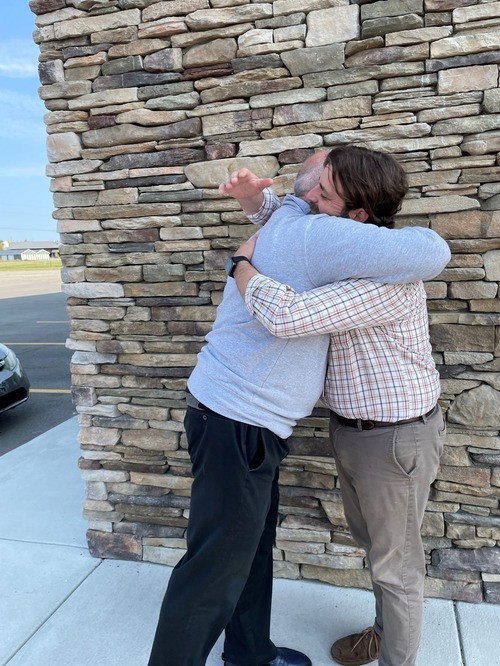
A servant Leader of the Month is Brad Somers. Thank you for your efforts to make the Church/our community better. Brad was presented a coin in celebration of his efforts.

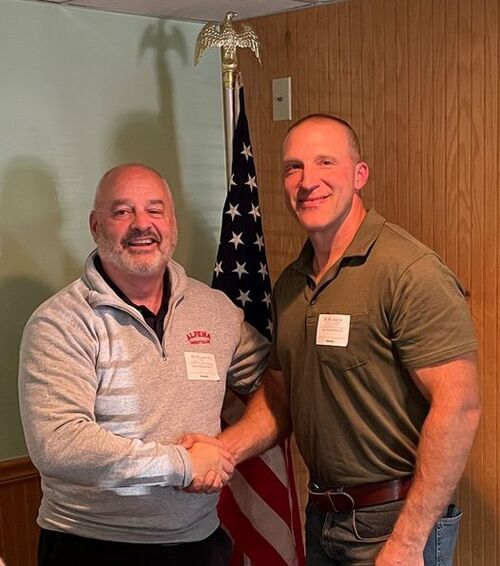
Met a combat veteran (Iraq and Afghanistan) who is currently serving in the Air National Guard stationed at the Alpena Combat Readiness Training Center. MSgt Cliff Prince shared his story today and I awarded him a coin, in celebration of his honorable service and sacrifice for our nation's freedom.
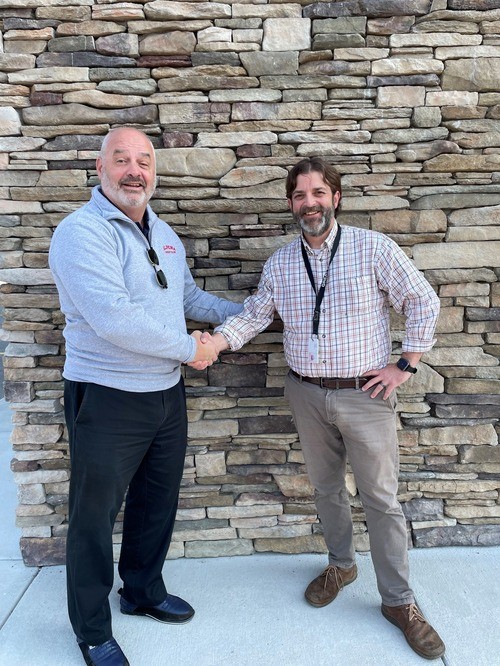
A servant Leader of the Month is Brad Somers. Thank you for your efforts to make the Church/our community better. Brad was presented a coin in celebration of his efforts.
